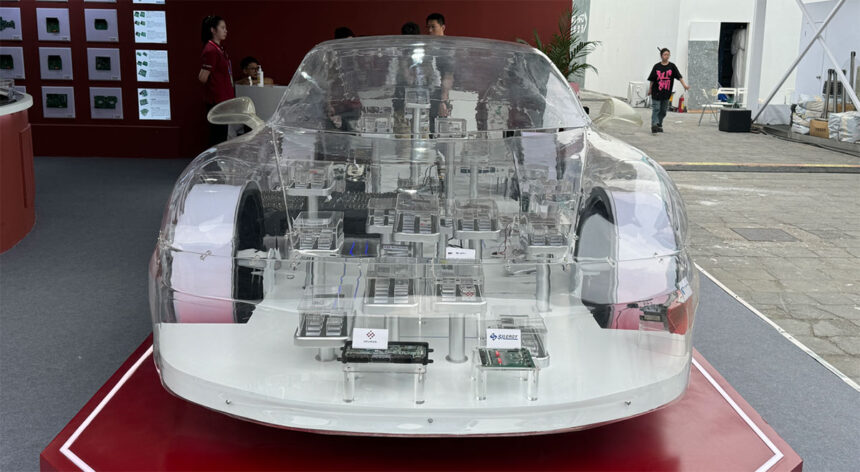The recent changes in US government regulations regarding semiconductor controls have had a significant impact on the supply chain of US chip products, according to a statement from the China Association of Automobile Manufacturers (CAAM). The association has urged Chinese automakers to exercise caution when sourcing chips from the US due to the uncertainty caused by these new regulations.
CAAM expressed concern over the arbitrary changes in control rules by the US government, stating that these changes have disrupted the stable supply of US chip products. The association emphasized that the trust and confidence of the Chinese automotive industry in purchasing chip products from US companies have been shaken, leading to doubts about the reliability and security of US automotive chip products.
In light of these developments, CAAM recommended that Chinese automotive companies be cautious in procuring US chips to safeguard the automotive industry chain, supply chain security, and stability. This recommendation comes at a time when most of China’s mainstream high-end electric vehicle models rely on US chip giant Nvidia’s Orin series of chips for their smart driving systems, and Qualcomm’s Snapdragon series for their cockpit chips.
The US government recently imposed controls on exports to 140 companies, including chip equipment maker Naura Technology Group, as part of its latest crackdown on China’s semiconductor industry. CAAM strongly opposes this move, condemning it as an expansion of the concept of national security and an abuse of export control measures to block and suppress China.
The association highlighted that such actions violate the laws of the market economy and the principle of fair competition, disrupting the international economic and trade order and destabilizing the global industrial chain. CAAM emphasized that the automotive industry is highly globalized, and China’s auto industry has always been rooted in globalized development.
As China’s automotive industry experiences rapid growth, particularly in the new energy vehicle (NEV) sector, CAAM underscored the importance of global cooperation in promoting green and low-carbon development. The association welcomed global chip companies to strengthen cooperation with Chinese automotive and chip companies, invest in China, engage in joint research and development, and share development opportunities.
In conclusion, CAAM’s statement reflects the challenges and uncertainties faced by the Chinese automotive industry in light of the US government’s changing semiconductor regulations. The association’s call for caution in sourcing US chips underscores the need for strategic planning and collaboration to ensure the stability and security of the automotive supply chain.





